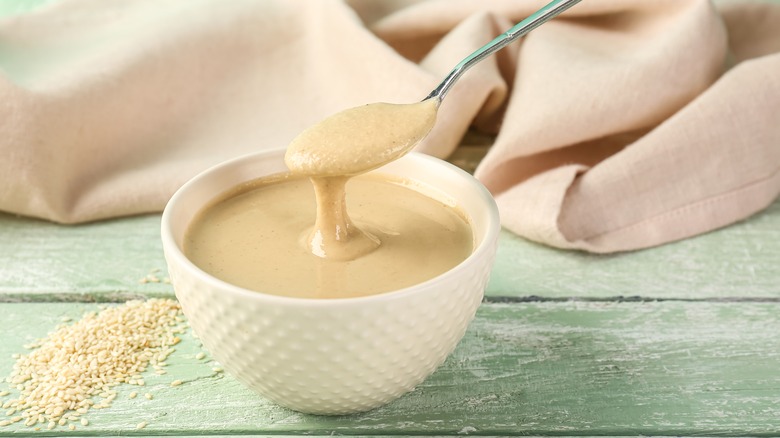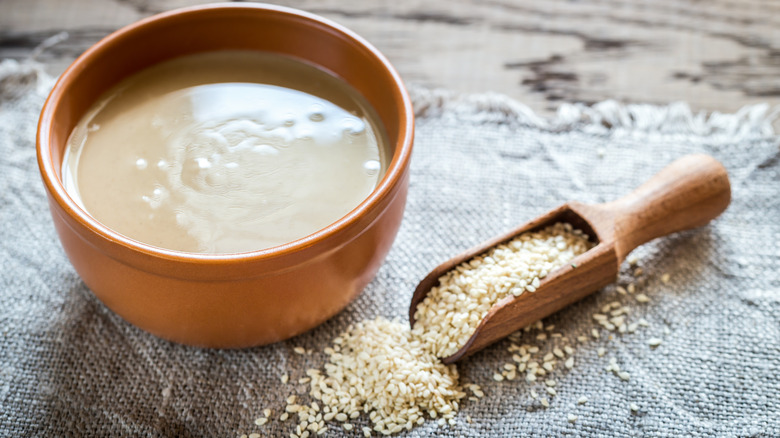Here's How Long Tahini Lasts After It's Been Opened
A creamy paste made of sesame seeds, tahini is a delicious and versatile kitchen staple. No matter what type of tahini you keep stocked, when you consider how many different ways there are to use tahini — smoothies, frostings, soups, avocado toast drizzles — a jar might rarely last long enough to approach its expiration date. But what about those busy weeks, or when other recipes steal your attention? Just how long will tahini last in its best condition and are there ways to lengthen its shelf life once it's been opened?
If unopened, tahini can last two years in your pantry or refrigerator. Once opened, it can still survive a whole year. This general guidance comes with two caveats. The first is that moisture is always the enemy of plans to keep food preserved as long as possible, as it introduces bacteria and quickens the spoiling process. In order to keep moisture out store your food in an airtight container – this goes for tahini, too. The second caveat is that there are plenty of tahini brands to choose from in stores, and whichever one you pick should have a clear sell-by or best-by date you can use as a reference. Beyond those dates, there are a couple of other ways to see if tahini has spoiled or just surpassed its prime.
Spotting spoiled tahini and preventing it for as long as possible
For starters, the separation you see sometimes is not a sign of spoilage. That's just pooling of tahini's natural oils; a good stir will take care of that. Tahini's texture offers a clue as to how good of shape it's in. Those oils start hardening as time goes by, so after a while, the tahini could be less creamy and difficult to stir. If the best-by date still hasn't come and you've been storing that tahini in a dry place, it's likely safe to eat, but the tougher it becomes to mix, the less usable it becomes. Spoiled tahini can turn a gray-tinged color or have a musty odor.
Since tahini's shelf life is dependent on how dry its surrounding space is, the storage location is determined by your preference regarding its consistency. If you keep your tahini in the refrigerator, it stays thicker like a nut butter. Store it in the pantry for a smoother tahini. Freezing tahini is an option, though it doesn't extend its shelf life much past that of refrigeration and it means you'll have to thaw the paste for every use.
The most crucial difference to consider here is that if you make your tahini these times drop significantly. This is because store-bought tahinis are made with stabilizers and preservatives. Without any chemicals, tahini lasts about a week in a well-sealed container on a dry pantry shelf, and up to three weeks in the fridge.

